Wednesday, July 16, 2008, 11:45 - Commentary, Photo of the Day
BrooklynThe fight for freedom can take many forms. There are those who man the barricades; there are those who give the speeches; there are those who face down the water cannons and angry dogs. And then there are those who document it all, without whom the rest of the world would never know what happened. Last week I had an opportunity to attend the opening of a show at the Schomburg Center for Research in Black Culture where I saw a wonderful example of the last kind of freedom fighter. “Nelson Mandela: Man of the People” now on display through August 31, gives us a historical and intimate glimpse of South Africa’s first freely elected black president. Over 100 images by celebrated South African photographer Peter Magubane trace the history of the man and the movement over 50 years.
“You do not ask permission to take pictures. No one tells me if I can or cannot take a photograph,” Magubane defiantly said at the opening. For me this quotation sums up my attitude towards photojournalism.
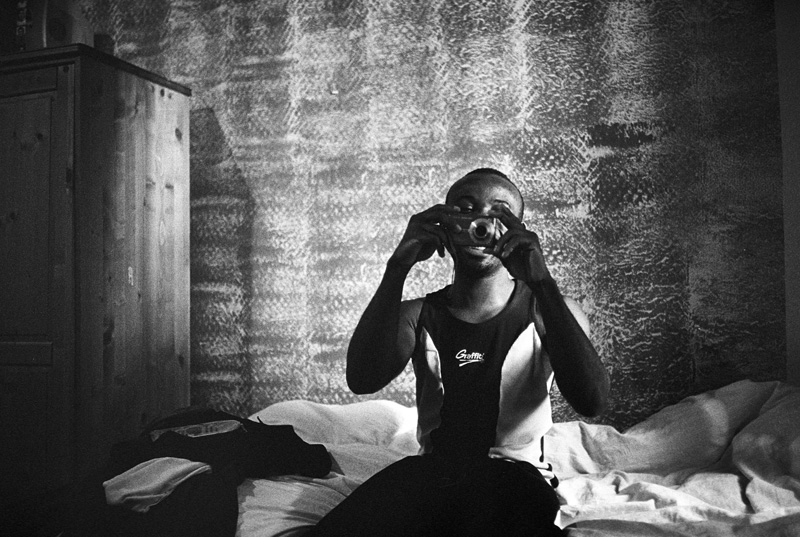
If he can do it, why can’t I? Vienna 2008 © Damaso Reyes
Some people, mostly non-photographers, are put off by this sentiment. The reaction I usually get when I say something to that effect is that photographers are somehow invading the privacy and the rights of those they photograph. I often hear the old cliché that somehow I am “stealing their soul.” No one ever talks about my rights as a photographer to document the world around me.
More importantly, this is not simply a right, it is an obligation I have as a journalist. Sometimes that makes people uncomfortable. Sometimes people consider it truly hurtful, although in more than 10 years doing this job I had never encountered that. Usually it is pseudo-liberal intellectuals arguing an abstract point that make this argument. Very few of them have ever been professional photojournalists. And that is exactly the point.
Taking pictures of people in pain or distress is not “fun.” It certainly is not easy. It is something I feel like I have to do in order to inform the greater world of what is happening. More importantly, only the photographer should decide when he or she should photograph. When society starts dictating when it is acceptable for me or my colleagues to do our work we are not only taking another step toward censorship we are depriving ourselves of knowledge of the world around us.
| 0 trackbacks
| 



 ( 3 / 522 )
( 3 / 522 )




 ( 3 / 522 )
( 3 / 522 )
Tuesday, July 15, 2008, 20:41 - Commentary, Photo of the Day
BrooklynSo yesterday was Bastille day and I totally forgot! I hope that all my French readers had a good time on their national day. While we bask in the glory that France, as we did on July 4, this is a good opportunity to reflect upon whether or our nation is living up to our ideals.
I was dismayed to read the following headline in the Guardian last week: France rejects Muslim woman over radical practice of Islam. The article talks about the decision France made to deny citizenship to a Moroccan woman who chooses to wear a burqa.
“The woman, known as Faiza M, is 32, married to a French national and lives east of Paris. She has lived in France since 2000, speaks good French and has three children born in France. Social services reports said she lived in "total submission" to her husband. Her application for French nationality was rejected in 2005 on the grounds of "insufficient assimilation" into France. She appealed, invoking the French constitutional right to religious freedom and saying that she had never sought to challenge the fundamental values of France. But last month the Council of State, France's highest administrative body, upheld the ruling.
"She has adopted a radical practice of her religion, incompatible with essential values of the French community, particularly the principle of equality of the sexes,” it said.
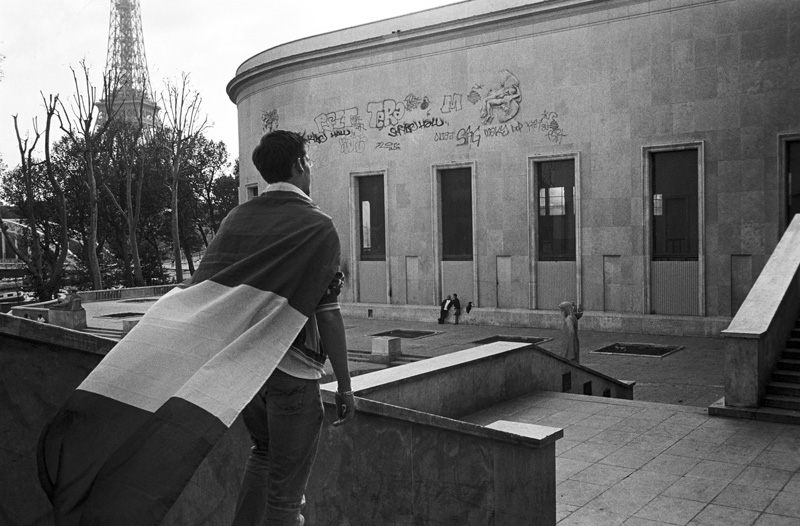
The future of France? © Damaso Reyes
This is disturbing for a number of reasons. It seems like this woman, aside from the fact that she wears a burqa, is the kind of immigrant that France wants. She speaks the language, she seemed fairly integrated into the society, and more importantly she wants be part of the society.
The problem that many Western European governments have when addressing the issue of immigration is that they want their would-be immigrants to totally and instantly integrate into their society. American history, with its long history of immigration, clearly shows that the process of integration usually takes two or three generations. “American” values have never been threatened by immigration although they have been enhanced by it. What we see in Western Europe is the effect of a policy of fear and distrust, one that only occurs when discussion and communication are absent.
People emigrate because they seek new opportunities and ultimately do want to become part of the society they choose. But this process takes time. On the streets of New York we see Hasidic Jews in their long black coats and women in their headscarves who have lived in this country for generations. No American I know of, except the xenophobic ones, feel that our society and culture is threatened by their expression of religion and culture.
Any culture which is not strong enough to handle diversity will sooner or later die.
Monday, July 14, 2008, 12:50 - Commentary, Photo of the Day
BrooklynI saw this poster a while ago and thought it perfectly summed up our society’s attitude towards photographers.

I assure you that this poster is real. It seems that the British government is trying to outdo its American cousins. Of course let’s not forget that George Orwell set 1984 in the United Kingdom. There was even a proposal to ban photography in public places, which thankfully didn’t get anywhere.
Right here in New York there was a proposal to ban photography in the subways, which also thankfully was not implemented after thousands of New Yorkers complained.
But why are we so afraid of photographers? There is no evidence that photography played an important role in any of the recent terror attacks. So this idea that terrorists are using photography as a surveillance tool is not really justified.
Hundreds of millions of people walk around every day with cameras in their pockets. The fact that these cameras are attached to mobile phones is irrelevant. In fact, if you were a terrorist what kind of camera would you use? A big, bulky SLR which would attract attention? Or would you use an inconspicuous mobile phone?
I think this obsession that the authorities, as well as many of my fellow citizens, have with controlling the activities of photographers has everything to do with the fact that our government can’t really protect us. Instead of focusing on the security of our container ports for instance, it is much easier, not to mention less expensive, for those in power to focus on the most obvious manifestation of our fear: the photographer.
But this doesn’t make us any safer, in fact it doesn’t even make us feel safer. At the same time we lose a little bit more of our freedom.Amazingly enough they are going the other way in Saudi Arabia of all places.
What do you think?
Saturday, July 12, 2008, 13:19 - Commentary
BrooklynThere is an old blues song that goes: “nobody loves me, except my mama and she could be jiving too.”
That seems to be exactly how people feel about the new American embassy in Berlin. I also think that it is fairly ugly but I don’t recall a single embassy of any country nearly anywhere in the world that I love. Nevertheless people are quite upset about this new fortress in the heart of Berlin.
Building the fortress. Berlin 2006 © Damaso Reyes
And since you’ve been waiting patiently, here it is your HCB Quote of the Week!
Photography is an immediate reaction, drawing a meditation. - Henri Cartier-Bresson
Friday, July 11, 2008, 12:05 - Commentary, Photo of the Day
BrooklynRecently the European Union concluded a new agreement on immigration and refugees. In this article in the International Herald Tribune we learn that the focus of the agreement is on policing and not integrating new immigrants and asylum-seekers into European society.
“But with its emphasis on increased border controls, the pact is likely to reinforce the image of a Fortress Europe.
"The European Union does not have the means to decently welcome all the migrants who hope to find a better life there," the pact says.
It comes less than a month after a decision by the European Parliament to extend detention of clandestine immigrants to as long as 18 months and to ban them from EU territory for five years. That decision brought sharp criticism, notably from Latin American countries that have taken in large numbers of European migrants since World War II,” write Katrin Bennhold and Caroline Brothers.
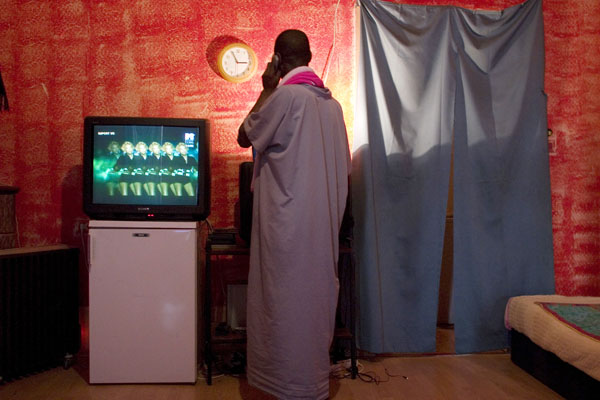
Not welcome. Vienna 2008 © Damaso Reyes
Rather than taking a bold stand on immigration, especially given their demographic concerns which we talked about last week, it seems like the European leaders are more than happy to take the easy way out. Eventually this will lead to immigrants going to countries that welcome them rather than give them the cold shoulder. This of course would be a disaster for Western Europe and the EU as a whole.
Thursday, July 10, 2008, 12:55 - Commentary, Photo of the Day
BrooklynIt seems that I’m not the only one who’s thinking about what the future of the E.U. There is an interesting article in Der Spiegel which talks about some of the reaction in the German press toward defeat of the Treaty of Lisbon. Here is one telling quotation from a left wing German newspaper:
"By stubbornly pushing through of this process, Brussels risks hardening many Europeans' image of the EU: That it is something where 'those up there' force something on the ordinary people. Or that something is put to the vote repeatedly until the result suits the politicians."
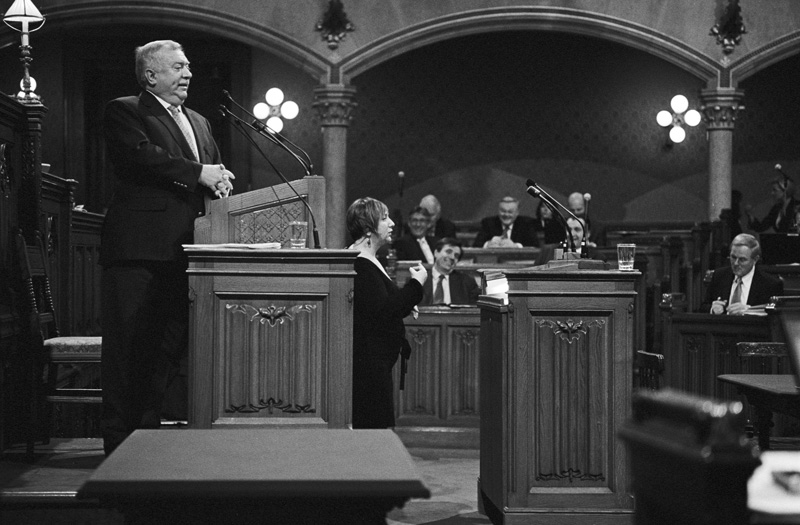
Listening but not hearing. Vienna 2008 © Damaso Reyes
This seems to perfectly sum up how far too many Europeans feel about the transnational government which is supposed to serve them. The real question is can and how these feelings can be changed. I believe that it has to start from the top and the attitude that those who favor of stronger European Union have. The decision-making process needs to become more inclusive. And European citizens need to feel like they have a say in the formulation of policy, not simply its ratification.
Clearly this would be a significant change from the way business is conducted in Brussels today. But I believe that if the union is to survive and prosper these changes need to be put into place post haste.
Wednesday, July 9, 2008, 13:00 - Commentary, Photo of the Day
BrooklynI got the following email in my inbox last week:
I am sorry to tell you that your application for [name redacted] was rejected by the jury.
Best regards,
Part of being an artist is accepting rejection; after all, you can’t win them all, can you? But sometimes you are feeling a bit low and then you get an email or letter like this one and you say to yourself: Does anyone understand what it is I’m trying to do here?
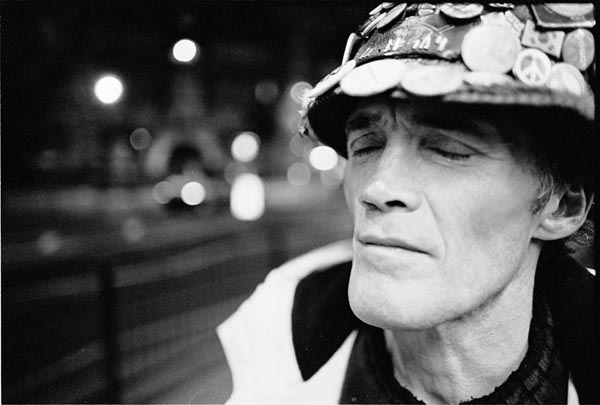
Election night rejection. London 2005 © Damaso Reyes
The short answer is no.
The long answer is yes, of course. But often it is difficult to see the glory of heaven when you’re stuck down in the mud. But who wants to stay down in the mud? So we keep applying and we keep hoping that eventually our hard work will pay off. In that spirit, here is a posting for a fellowship! It is for the Fulbright I did earlier this year in Vienna. It’s a great opportunity and I strongly encourage all of you Americans out there to apply. Good luck!
http://www.cies.org/award_book/award200 ... ul9190.htm
The purpose of this award is to give creative artists of all contemporary media, including but not limited to publishing companies and radio and TV broadcasters, media and projection art, electronic music, game culture, comics, film analysis, sound architecture and light art, an opportunity to work in residence with one or more of the cultural providers associated with quartier21. A project proposal that describes the artist’s planned contribution to quartier21 activities and that specifically mentions one or more quartier21 project partners of interest should be submitted with the application. A letter of invitation from an appropriate MuseumsQuartier host is strongly recommended.
Language: Activities will be conducted in English.
Location: MuseumsQuartier Vienna
Length of Grant: 2 months to 4 months
Starting Date: Between October 2009 and June 2010
Housing provided by the host institution.
Located in the center of Vienna, the MuseumsQuartier Wien is one of the 10 largest cultural complexes in the world. It has a special interest in the promotion of contemporary arts and provides the infrastructure for a wide variety of museums, concert halls and other cultural institutions. Quartier21 is an organization that provides support to over 40 institutions and autonomous cultural and artistic initiatives situated in the MuseumsQuartier, focusing its programs on media arts, contemporary music and fashion (consult http://quartier21.mqw.at/structure/ for details).
Staff: Program Officer Alisha Scott, 202.686.6244, ascott@cies.iie.org or Program Associate Abby Greenwell, 202.686.6232, agreenwell@cies.iie.org
Tuesday, July 8, 2008, 13:38 - Commentary, Photo of the Day
BrooklynWhile visiting one of my favorite websites, the EU Observer, I came across an interesting article about some new European Commission legislation regarding discrimination. While Europe, especially the E.U., is very progressive and forward thinking when it comes to the issue of equal rights, the article talks about how when it comes to equality in marriage gays and lesbians still have some way to go.
“New European Commission proposals to put an end to discrimination on the basis of age, disability, sexual orientation or creed have been given a lukewarm welcome by civil liberties groups, who say prejudice against same-sex couples who wish to get married is not adequately covered,” wrote Leigh Phillips.
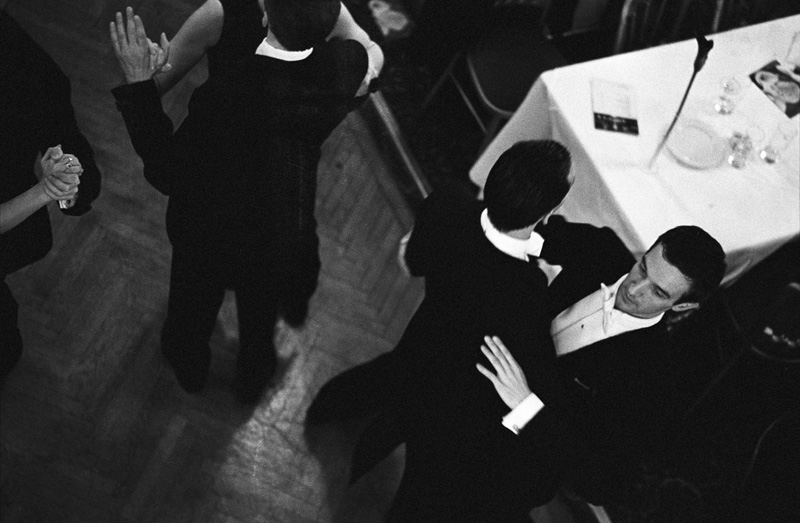
Dancing in Vienna, 2008. © Damaso Reyes
Currently three members of the European Union Spain, The Netherlands, Belgium as well as Norway allow gays and lesbians to marry. In general, citizens of the European Union are fairly tolerant of homosexuality, at least compared to many other places in the world. So why shouldn’t the E.C. be more aggressive in expanding gay marriage?
One reason might be that with the rejection once again of the EU constitution leaders in Brussels fear pushing their citizens too far too fast. There are far too many examples bureaucrats in Brussels making decisions which they say are in the best interests of citizens but which are simply an exercise of power and control. This would not be one of those cases.
Sometimes the role of government, as the American federal government showed during the civil rights era, is to lead its citizens, not to simply follow. Clearly one of the issues that the evolving European Union has to face is to try to balance these two extremes.
Monday, July 7, 2008, 12:28 - Commentary, Photo of the Day
BrooklynI hope that everyone had a good weekend as I did! I started my Independence Day celebrations early by going with some friends Six Flags, an amusement park located in nearby New Jersey, on Wednesday. On Friday and Saturday I had opportunities to do some barbecuing as well as see some good friends.
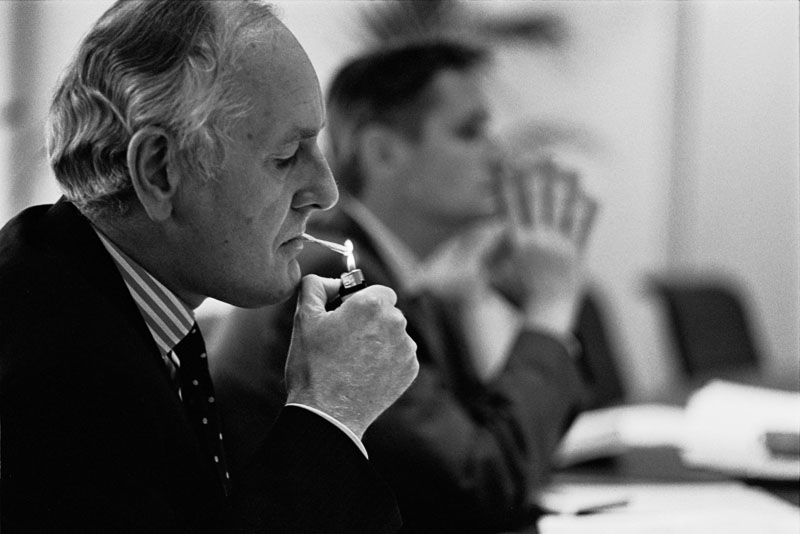
The exception to the rule. The Hague 2005 © Damaso Reyes
Well it’s a new week and a new day and of course that means a new Photo of the Day! Der Spiegel has an interesting article about the difficulty of enforcing the smoking ban in Germany. Now of course we’ve talked extensively about the German proclivity for following the rules. This issue seems to be an interesting outlier. When it came to getting rid of the mark, there was no problem; but take away people’s cigarettes and you’ve got a fight on your hands!
Friday, July 4, 2008, 12:50 - Commentary, Photo of the Day
BrooklynHappy Independence Day! Today I will be spending some time with good friends, eating good food and of course watching the fireworks along the East River. I hope my fellow Americans are also having a good day and taking some time to think about what is to be an American in this day and age. Independence Day is not just another holiday but an opportunity for us to think about what our country stands for and how well we are living up to our own aspirations.
If you have a minute this holiday weekend check out this link and vote for my website. With your help I can become one of the most popular photographers on the web! Enjoy your holiday weekend…
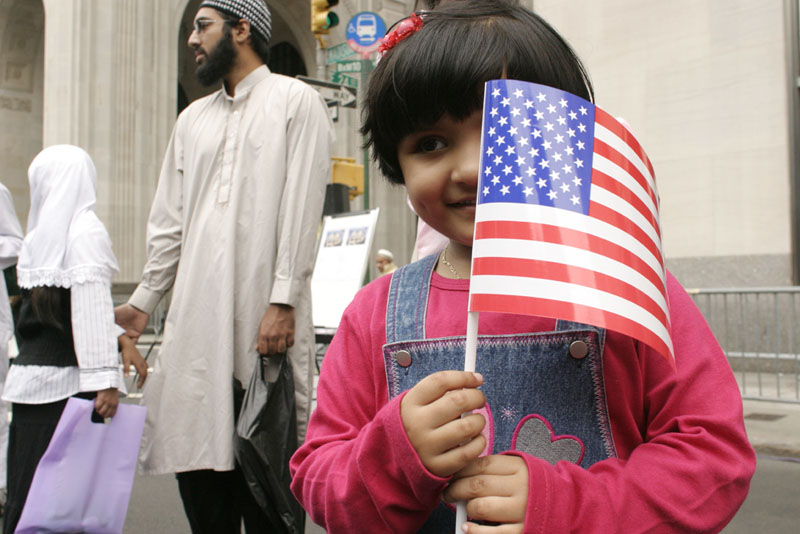
Waving the flag. New York City 2005 © Damaso Reyes
I took this picture at a Muslim-American Day parade a few years ago. For me this picture is the perfect example of how immigration can benefit both the immigrant and the society. While we in America have an imperfect track record on immigration, and are still struggling with the issue even today, the belief, however true it may or may not be, that once you become a citizen you can achieve anything you aspire to is a very powerful motivator for immigrants to assimilate. It doesn’t happen overnight, and often takes several generations but the fact that our society is open to immigrants means that they have a stake in our country and we have a stake in their success.
How many young Muslim girls in Germany or France wave their nation’s flags? It is in the interests of everyone in Western Europe to make sure that the millions of immigrants from Turkey, Algeria and the rest of the world feel that they can one day become French, German and more importantly European.
I will be enjoying the long holiday so the HCB Quote of the Week will see you next Saturday!
Thursday, July 3, 2008, 13:05 - Commentary, Photo of the Day
BrooklynI saw this article from Reuters the other day and it nearly made me want to scream. It turns out that Hollywood actor Ben Affleck is doing some freelancing for the ABC news program Nightline. Apparently this is the only way to get people interested in what’s happening in the Democratic Republic of Congo. It says a lot about not just where TV news but journalism in general is going.
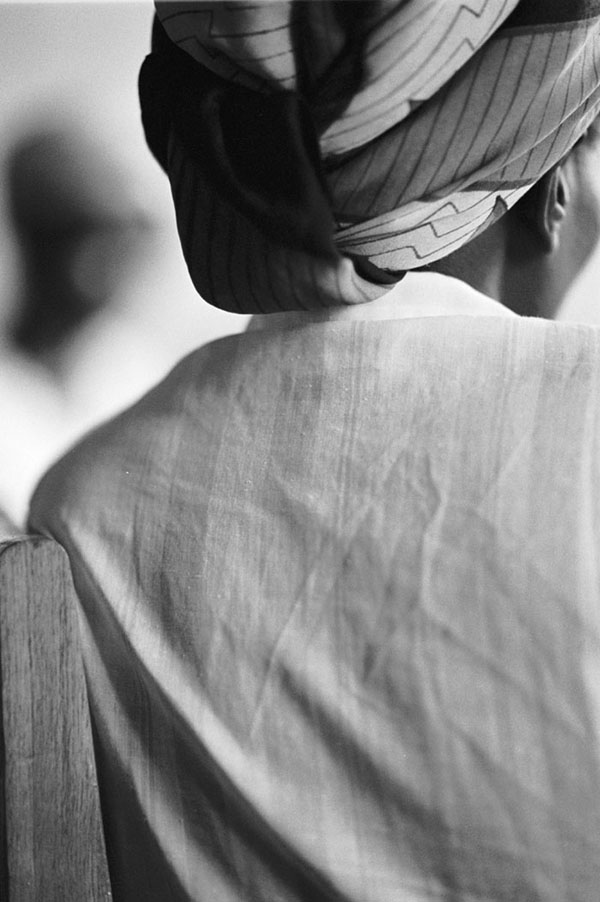
A victim of rape during the Rwandan genocide. Kigali 1999 © Damaso Reyes
One of the things I’ve encountered time and time again is the indifference that editors in the mainstream media have towards issues and places that are considered marginal. More people have died in the DRC in the past 10 years than in Iraq and Afghanistan combined. Apparently this is not enough to warrant our attention.
This is just one of the many reasons why I’m less and less interested in doing traditional journalism. There are better and more interesting ways of getting information out to the people who need it most. I hope that in some small way this blog can be part of that process.
Wednesday, July 2, 2008, 12:25 - Commentary, Photo of the Day
BrooklynWhat is it about religion seems to drive people crazy? People can agree on 90% of the issues but that remaining 10% will give them justification for murder each other. At least that often seems to be the case when it comes to religion. A recent article in the Guardian announces a schism within the Anglican Church, the second largest group of Christians in the world.
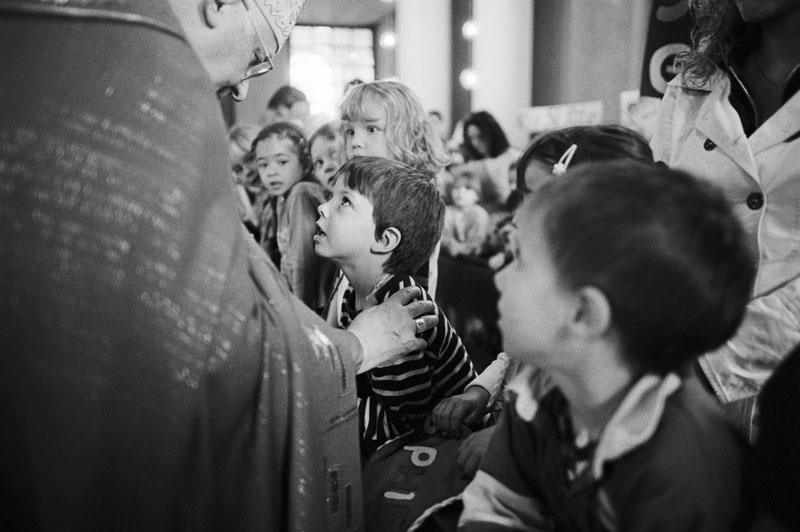
An increasingly rare sight. Berlin 2007. © Damaso Reyes
For some time more conservative elements within the church have been unhappy with the more liberal and tolerant part of the church in the western industrialized nations. Most important to the conservatives seems to be the liberals’ toleration of homosexuals and homosexuality.
Within both Christianity as well as Islam there seems to be this growing tension between conservative and fundamentalists and liberals. These tensions threaten to not only tear their respective religions apart but alienate these faiths from society at large. As we know churches attendance in Western Europe has been declining rapidly for many years. I don’t think this latest row is going to help matters much.
What do you think?
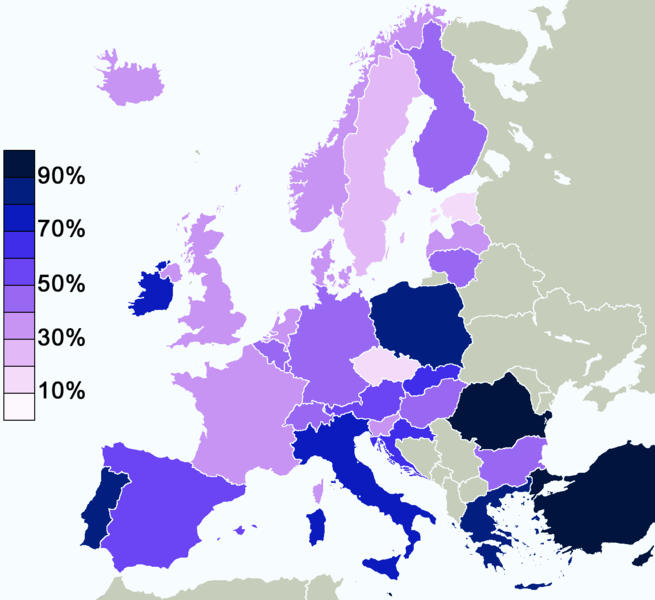
The map shows the results of a Eurobarometer poll conducted in 2005. Available at: http://europa.eu.int/comm/public_opinio ... ort_en.pdf (p. 9)
Shown here is the percentage in each country which chose the response "I believe there is a God" above other possible answers (not included in this image), which were: "I believe there is some sort of spirit or life force", "I don't believe there is any sort of spirit, God or life force" and "don't know".
Grey countries were not included in the poll
Tuesday, July 1, 2008, 11:08 - Commentary, Photo of the Day
BrooklynOne of the things I love about the Internet is that it provides an opportunity for a back-and-forth between ideas and people no matter how far apart they are. A German friend of mine read my recent blog posting on the issue of censorship. On her blog she posted her own thoughts about the issue from her unique perspective as a young German. Here’s one interesting excerpt:
It seems clear: What we really need is not a censorship that represses people but a society that is awake and sensible for the subtle tones of racism.
But let us be honest and realistic: How often do we see big parts of this society fail? How often do we see ourselves fail? How often does it happen that no one raises his voice when it should be there?
To me there are some good reasons for a censorship: It is a sign that there are borders of things that can be said, borders in the name of freedom. There is a clear possibility for juridical consequences for who might not acknowledge these borders. It is an official statement from our state towards foreign states and towards Israel (with which we have in common that this belongs to our history that marks us – in a bad and I always hope also in a good way).
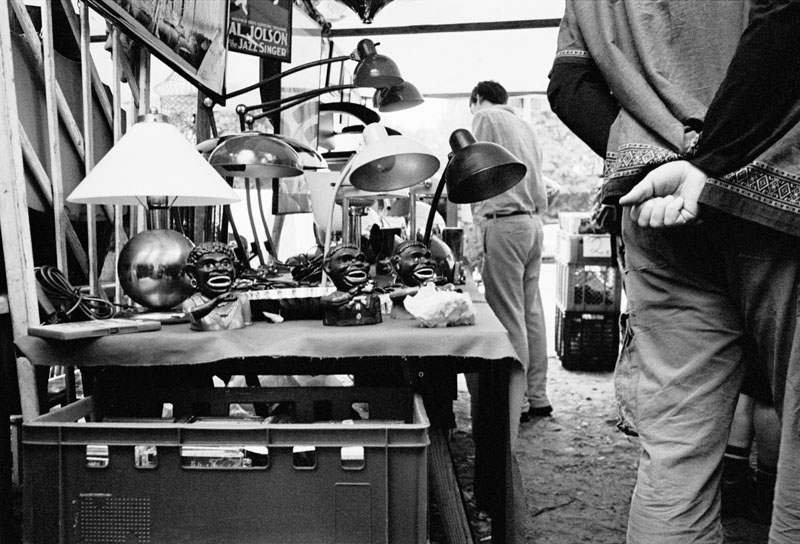
What else should we ban? Berlin 2006. © Damaso Reyes
I think she makes some interesting points but I stand by my original ideas. I think the biggest issue that Germany as a society has not really dealt with honestly is the fact that National Socialism was not an aberration, but a manifestation of a society which places too much importance on deference to authority. While I lived in Germany I encountered an almost pathological need to adhere to rules and regulations. In America the idea of challenging authority especially political authority deeply ingrained in our national character. From what I’ve observed Germans are still learning that this is a valuable and importance character trait to have.
Ultimately we need to deal with the ideas that we find most threatening and offensive openly. It’s far too easy and lazy for us to simply stand groups and ideas that we find threatening. And more importantly, it does not make these things go away. As we all learn sweeping dirt under the rug doesn’t mean that it has disappeared.
What do you think? I look forward to reading your comments!
Monday, June 30, 2008, 12:46 - Commentary, Photo of the Day
BrooklynI hope that everyone had a great weekend! Here in New York it was hot and wet but I didn’t mind too much, after all it is summer. Another week, another article about Europe’s declining birth rate. The New York Times Magazine did a cover story about the issue and its potential ramifications. It was a very interesting piece; the article discussed many of the issues we have talked about here on this blog. The author asked “Will Europe as we know it just peter out?” I certainly hope not! But he did talk about many of the important economic issues as well as various theories about how to solve the problem including immigration.
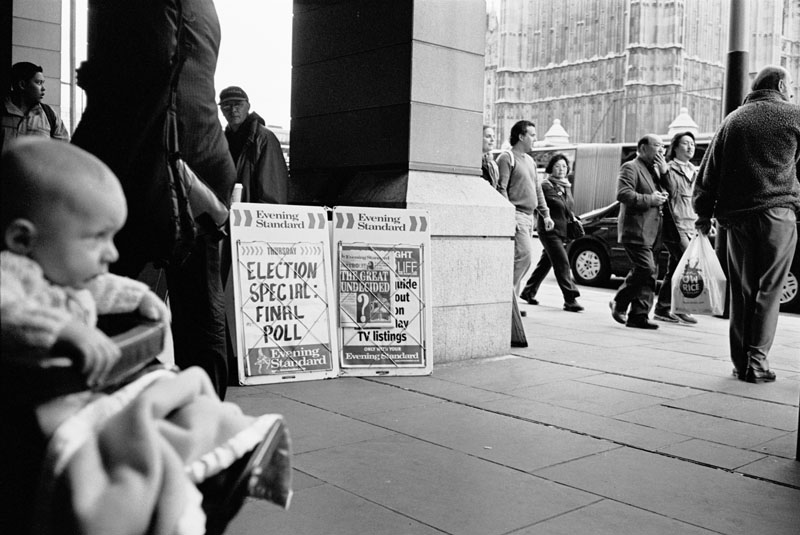
The future is now. London 2005. © Damaso Reyes
“Another obvious approach to increasing the population: If you can't breed them, lure them. Britain is going through a radical transformation in its social makeup, largely as a result of immigration. A government report in late 2007 projected Britain would have 11 million more people by 2031 - an increase of 18 percent - and by one estimate 69 percent of the growth would come from immigrants and their children,” wrote Russell Shorto.
This is a debate that will only become more important in the coming years. I hope that we can use the images I’m creating as well as this blog to increase the dialogue between us about the future of Europe.
Saturday, June 28, 2008, 13:01 - Commentary
BrooklynSo this week’s New Yorker’s got to experience another massive public art opening with the unveiling of Olafur Eliasson’s piece “Waterfalls.” The Danish artist created four large artificial waterfalls around New York harbor at a cost of more than $15 million. I went out the other day to have a look and to say the least I was underwhelmed. While the waterfalls are tall, the fact that you can still see the scaffolding makes them seem much less impressive.
Remembrance of things past. © Damaso Reyes
The piece is has been compared a great deal to “The Gates.” But even supporters of the waterfall have been quick to note that they are completely different pieces. “The Gates” were much more interesting partially because they were interactive. You could actually touch and walk through and around them as opposed to these pieces which you can only view from a distance. The artist says his intention was to get New Yorkers to take another look at the waterfront. I think this could have been done much better by a building several parks for that $15 million. Or by breaking that money up into several large grants for the thousands of struggling artists here in New York. I’m not a big fan of monumental artworks, especially those made with public money. This piece of art is temporary but the money will be gone forever and what will we be left with?
While you think about that, here’s your HCB Quote of the Week.
It seems dangerous to be a portrait artist who does commissions for clients because everyone wants to be flattered, so they pose in such a way that there’s nothing left of truth. - Henri Cartier-Bresson
Back Next

 Calendar
Calendar




